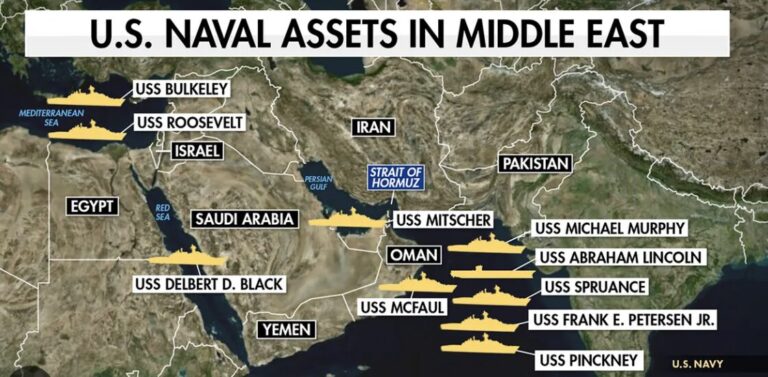Adapting To Climate Change.
IT IS ONLY SLOWLY DAWNING on climate change activists that the fight against global warming is lost. Locally, Cyclone Gabrielle has rendered their cause hopeless. By insisting that Gabrielle is slam-dunk proof that climate change is real, and demanding immediate action to mitigate its impact, the activists have, politically-speaking, over-sold their case. The idea of mitigating a weather event as destructive as Gabrielle will strike most people as nuts. If this is what global warming looks like, then most New Zealanders will want their government to help them adapt to it as soon as humanly possible. Increasingly, politicians and activists who bang-on about reducing emissions and modifying human behaviour will be laughed-off the political stage. It will be the parties that offer the most practical and responsibly-funded adaptation policies that win the elections of the future – including the one scheduled for October 14 2023.
In retrospect the mitigators cause was always hopeless. So long as the effects of global warming were not going to be felt for many years, climate activists would never be able to force the changes necessary to prevent them. Tomorrow, as everybody knows, never comes – especially not in politics. Once heatwaves, wildfires, storms, floods and rising sea-levels start ruining people’s lives, however, their reactions will be different. “Okay, we believe you about climate change,” they will say. “So, now you have to show us how to adapt to this new normal?”
The other, even bigger, problem facing the mitigators – especially in New Zealand – is this country’s infinitesimal contribution to climate change. Kiwis and their industries pump out just 0.17 percent of global greenhouse gas emissions, and yet the mitigators keep telling them to completely change their economy, and the lifestyle it funds, so as to keep some barmy promise that all the largest greenhouse gas emitters are happy to break every single day. Since the Paris Climate Accords of 2016, the amount of CO2 in the atmosphere has gone up, not down. Collectively, the human species is burning more coal, more oil, and more natural gas than ever before. So, how likely is it that New Zealand pulling on a metaphorical hair-shirt and crying “Follow our mitigation example!” is going to stop them?
New Zealanders aren’t the only people asking inconvenient questions about mitigation. All across the developing world the penny is beginning to drop that the extraordinary civilisation brought into being by the exploitation of fossil fuels in Europe and North America; the civilisation responsible for anthropogenic global warming; is not a goal the climate change mitigators believe they should aspire to.
Practically speaking, the mitigators have a point. The huge boost given to climate change by the dramatic economic and social development of China, if amplified by equal “economic miracles” in India, Indonesia, Brazil and the nations of Africa, will make a complete nonsense of the Paris Climate Accords. The mean surface temperature of Planet Earth will rise to levels not seen since the dinosaurs roamed a planet without ice-caps.
But, just how receptive are the poorest peoples on Earth likely to be to a message delivered to them by their former colonial masters which boils down to: “Please don’t try to become as rich as we are – the planet can’t take it.” Are they likely to say: “Yes, Master, we are happy to remain poor – for the planet’s sake.” Or, will they not-so-politely suggest that if the peoples of the West really are so determined to save the planet, then how about they agree to spread their extraordinary wealth evenly across it? Will either side agree to mitigate climate by making such huge sacrifices? Or, will both sides move as swiftly as they can to implement an adaptation strategy?
Not that adaptation will be easy in the developing world. Not when it’s the poorest countries that are most vulnerable to the effects of climate change. Their leaders have appealed to the richest nations for funds to help them recover from catastrophic weather events – like the floods that put a third of Pakistan under water. Alas, in spite of the West’s solemn promises to set aside billions, billions have yet to be set aside.
Inevitably, as the world warms, nation states will become even more selfish. When cyclones as devastating as Gabrielle lay waste to forests, farms and orchards, and make plain the worst errors of urban planners, every available dollar is going to be spent on recovery and adaptation. Pleas for financial assistance from developing nations confronting similar challenges are likely to fall on deaf ears. Charity, the voters will insist, begins at home – and their political representatives will not dare to disagree.
It has not helped the mitigators’ cause that so many of them seem to be located on the left of the political spectrum, or that those not identifying as left are fervent advocates of indigenous rights. These climate activists characterise “Carbon, Capitalism and Colonisation” as the three evil giants that must be slain before climate change can be effectively mitigated. They are less forthcoming, however, when asked how this slaughter might be accomplished. This is understandable, given that the chances of destroying Carbon, Capitalism and Colonisation peacefully and democratically are rather slim.
Not that these difficulties are likely to bother the true revolutionaries, since for them global warming has always been the most wonderful excuse for imposing the sort of regime that nobody who believes in individual rights, private property, and the Rule of Law would ever willingly submit to. In the grim summation of George Orwell: “Power is not a means; it is an end. One does not establish a dictatorship in order to safeguard a revolution; one makes the revolution in order to establish the dictatorship.” For far too many climate activists, mitigation has always been a Trojan Horse.
For those more moderate socialists, however, a strategy of adaptation can only be a good thing. Preparing a nation for the worst a warming world can throw at it will, necessarily, involve a wholesale revision of the economic nostrums responsible for leaving New Zealand – and many other nations – so vulnerable for so long. Setting in place the infrastructure needed to fend-off the worst that Mother Nature can throw at us will not be cheap and will require as its first major project the wholesale re-strengthening of the state. New Zealand can follow a strategy of adaptation, or it remain shackled to the doctrines of neoliberalism, but it can’t do both.
It’s an ill ex-tropical cyclone that blows nobody no good.







https://m.youtube.com/watch?v=l2UktJtKpFw
Adaption isn’t going to work if we keep putting more and more greenhouse gases into the atmosphere. It’s not like the temperature is going to go up and then stop after a couple of degrees. Without any limits on greenhouse gas emissions, adaption is not a solution. It just prolongs the dying process.
The coming climate stresses (stresses, a grotesque understatement) are going to invoke new forms of natural selection in humans. The mitigaters look like strong candidates for erasure from the race of Homo Not So Bloody Sapiens After All. Build flood barriers and retreat is your sole strategy? While fuelling the accelerating violence of climate change with the old normal? Hah! We see the congenital short-termism of humans at play here – do what’s convenient, not what’s necessary – humans fatally unable to recognise the vicious new assault on our ways of living and other hubristic absolutes.
Sure, secure our lands and lifestyles on the flood plains and fire fronts of today. People need places to live and work. But how do you imagine these defences will cope when the melting Arctic ice sheets lift sea levels by 5 metres? Sooner then predicted. Or when the Antarctic ice sheets melt raising sea levels by 50 metres? Or when the tsunamis of desperate displaced humans arrive? Or when the natural systems we’ve violated for so long no longer support us? Retreat? Yes but you haven’t even attempted to deal with the root cause of the crises, even when you had a chance to do that on your own terms.
Mitigate by all means but treat that as winning a breather alongside contemplating the radical behaviour changes you still have time to make before the climate holocaust makes them for you.
This article is largely nonsense and demonstrates a very poor understanding of the science and facts.
Mitigation of anthropogenic climate change has to happen in parallel with adaptation to the already baked in warming driven effects.
Why? Because otherwise you are fighting a losing battle. If we don’t act to mitigate warming, the climate system is going to degrade much farther and become much more chaotic, to the point where adaptation is nigh on impossible.
Yes, me must adapt to the current and near term reality, but if we don’t get the warming under control, no amount of adaptation is going to help us.
If people proposing adaptation are to be laughed off as the author suggests, then we are in for much worse outcomes than even the terrible ones we are currently experiencing.
This is Nature and how the earth’s geography evolves. How do you think Napier, Havelock, Canterbury and every other flat land was formed?
This has been going on for millions of years, it is just in the last few hundred that people have been there to experience it.
Moving away from fossil fuel dependence is going to happen whether it’s for carbon emission mitigation or not.
Do we have to wait for the next fuel shock to really eff things up, for people to realize BAU is not an option.
Adapting to climate change or doing things better, full stop? We do live in the South Pacific and historically these big weather events do impact on our shaky isles from time to time. With more frequency? More intensity? Well, we seem to have reached a conclusion on that already. In Japan and the Philippines cyclonic events are not new, except they call them by another name, driven by the monsoon winds. Every season there are localised mud slides, flooding, lives are lost, properties ruined. The difference is they generally don’t build on cliff edges where the ground is unstable, on or beneath slipperybacks, or in the path of rivers that have the potential to sweep all aside in extreme events. They don’t plant steep hillsides in exotic species that give little or no protection to the land or have to deal with the slash of commercial forestry, which swept down into the valleys wipe out bridges and cover the land in debris. Doing things better, or let’s face it, not doing it at all, would be a strategy equal to adaptation to climate change.
There is a problem. A big one. Like most western style nations, we’ve signed up to Carbon Zero 2050. This is all very well as a virtue signaling exercise and to prevent us facing trade barriers in Europe for not playing the game, but we simply cannot deliver it and with the exception maybe of Norway, neither can anyone else. The basic facts:
1. The world cannot replace existing petrol and diesel fueled cars with EVs because we don’t have the mineral resources to do it. I’ve worked in the mining industry for decades as an engineer/consultant and I can tell you with complete assurance that the Lithium, Nickel, Chromium, Copper, Neodymium and in particular Cobalt ores simply aren’t there to be mined at the rate we need them. And even if they were, we’d need a couple of decades and an eyewatering amount of capital to ramp up mining operations. We make normal cars out of iron and aluminium because we have lots of it. So, unless we develop and entirely new battery technology, EVs will remain the province of the wealthy few. Expect mineral prices to soar in the coming decade as manufacturers try to out-bid each other (great investment tip!)
2. If we’re to electrify the vehicle fleet by 2050 we will need to generate ~2.5 times as much electricity to power them. Wind and solar can add a little here and there but you’d be dreaming to think these renewables can produce this much power consistently and reliably. Geothermal can also add a fair bit but once again, it’s not going to get us anywhere near what we’ll need. Since signing up to 2050 we’ve actually gone backwards in terms of the percentage of power produced by renewables, not forward. If we’re serious about reaching this target, we’ll need a couple of nuclear power stations, and that’s going to go down like a cup of cold sick with the average uninformed voter. Or can someone tell me where we can build another half dozen or so Manapouri power stations?
3. All that additional electricity will require an entirely new electrical grid, to transmit it. Last time I checked large, high voltage transformers were on a 30-year waiting list. Best we put in an order now! LOL
4. Hydrogen is not an option – it’s just BS because most of the world’s hydrogen is made as a byproduct in oil refineries and if we don’t make it that way, we need electricity to make it.
From conversations I’ve had with both National and Labour party people, they haven’t a clue what this entails. None have any grip on the technological aspects from what I can gather. At least Seymour is an electrical engineer, but he has never actually practiced as one. We’re being led by science illiterates.
@Andrew “that the Lithium, Nickel, Chromium, Copper, Neodymium and in particular Cobalt ores simply aren’t there to be mined at the rate we need them.”
Agreed, add that collectively Russia, Belarus and Ukraine are major exporters of a number of those (including 1st for Nickel and 2nd for refined copper), so major parts of the resources we do have are going offline.
Further the green tech material supply chains link to dozens of countries (many unstable) with widespread trade routes. So as deglobalisation continues it will become harder to guarantee the existing supply let alone supply at the volumes required for an EV revolution.
Absent new sources of raw materials or new technology, I suspect securitisation and conflicts for resources in green tech manufacturing are on the cards. Due to the numbers of nations and trade routes involved will be order of magnitude more complicated than the oil wars since WW2.
We need adaptation including new tech. The chances of an EV revolution with current geopolitics and technology is zero. As is being carbon neutral by 2050 without the global economy deindustralising.
Yknow a lot of people say that tough guys are the patriarchy and that tough guys walk around rapung woman, get tattoos, join gangs or whatever cliche.
Well I’m here to tell those people that they are wrong.
A tough guy is someone who goes to work even if he’s stressed out, hates it. A tough guy knows that if he doesn’t go to work then he can’t support his family and feed his kids.
Nope ignoring climate change is a dinosaur approach. International co operation is needed.
Imagine if those who are on their roof tops in Esk Valley were told, floods inevitable, no help is coming, we are ignoring you, as too late.
Not a moral approach.
I don’t agree with the governments stupid woke/big business led approach to climate change, but I do believe that to ignore climate change, is morally corrupt. We just need better solutions and thinking on this.
Clearly thinking that big business and woke funded lobbyists are coming up with the master strokes on how to proceed with climate change, is not going to bear a good outcome for climate change.
Thinking about our small emissions and consequent logical satisfaction from limiting our country’s emissions to that which enables us to pull our weight and still carry on, I wonder if it is time to think along the lines of a new ‘Colombo Plan’. Which would mean small nations working together to make improvements reasonable for their size, and co-operate in so doing. I note from the wikipedia entry that the USA wasn’t in it and seemed based more on Commonwealth nations, Or has a quick glance not picked up the full details? Is it time to revitalise the colonial connections with a residual positive effect!
https://en.wikipedia.org/wiki/Colombo_Plan
Lets not forget that Chris was instrumental in forming “New Labour” and subsequent “Alliance” grouping, which achieved Kiwibank and Paid Parental Leave among many other incremental reforms before self destructing over Afghanistan.
So he pines still for social democracy, as do many of us!
Re this “Adapting to Climate Change” at least the adapters appear to acknowledge reality and scientific consensus at last. None the less, the question is how to turn around virtually 40 years of deeply embedded neo liberalism in NZ legislation, culture and daily life practice?
A number of the infrastructure problems encountered during the Cyclone were due to Rogernomics fudging accountability lines, light or no regulation and people’s asset sales. How many Gabrielle stories did you hear about competing or conflicting Ministries, agencies and Local Govt. responsibility to solve issues?
Mass redundancies in the 80s/90s were just the beginning–there used to be Govt. run Forestry which employed thousands, Telco infrastructure was publicly owned as was power generation and supply. Private Capital did not take over working class built infrastructure to deliver a robust service, as people without power and communication or food and drinkable water have discovered.
A major political campaign needs to be run to discard monetarism and neo liberalism and return significant infrastructure to public ownership.TDB readers know what is on the list by now.
Chris has pointed out this is a “fork in the road event” because it will happen again.
Someone should do something about climate change.
The gummermint should do something about climate change,
Isn’t anyone thinking about the children?
Phew feel much better now that I’ve done my bit for climate change
It’s becoming pretty clear that the only way the country can return to being an advanced economy is if government intervention and state enterprises make a comeback.
The condition of the infrastructure is atrocious. It would require large amounts of money even if Peak Oil and pollution issues didn’t exist.
The country has long been a laughing stock due to its stinginess, and in such extreme circumstances, this flaw in the national character will have to go. People claiming that it is ‘impossible’ for Auckland to rebuild the tramways it already had 100 years ago is a good example.
At any rate, production and household incomes cannot be crushed under the weight of economic backwardness. Otherwise production will continue to fall off a cliff, and households will go bust — only the government can arrange large enough investment sums for modern infrastructure, industrial machinery and pollution reduction systems.
I’d go even further than Mr. Trotter: anything other than mitigation cannot make sense in the medium term, regardless of how radical your political programme is.
No matter how your economy is organised, it takes a long time to mine all the raw materials required for mass electrification. For certain metals, prospectors will actually have to find large new reserves to meet demand.
As a consequence of recent events, I’ve been reading about the Esk valley floods in 1938. Lives lost, metre thick silt and stock washed out to sea. Sound familiar?
Down the road from my place is the Birkenhead ferry jetty. The land to the south of Hinemoa street next to the sea – Hinemoa Park on the map – didn’t exist until the late Victorian era when an enormous land slip came out of the hillside to the north of the road and slumped into the sea, forming today’s park. Does this also sound familiar?
Regardless of any hypothetical climate change, these fair isles are sometimes in the path of intense tropical storms, so we should be designing our infrastructure accordingly and reconsider building on the steep clay slopes and soft cliff edges found in many parts of Auckland.